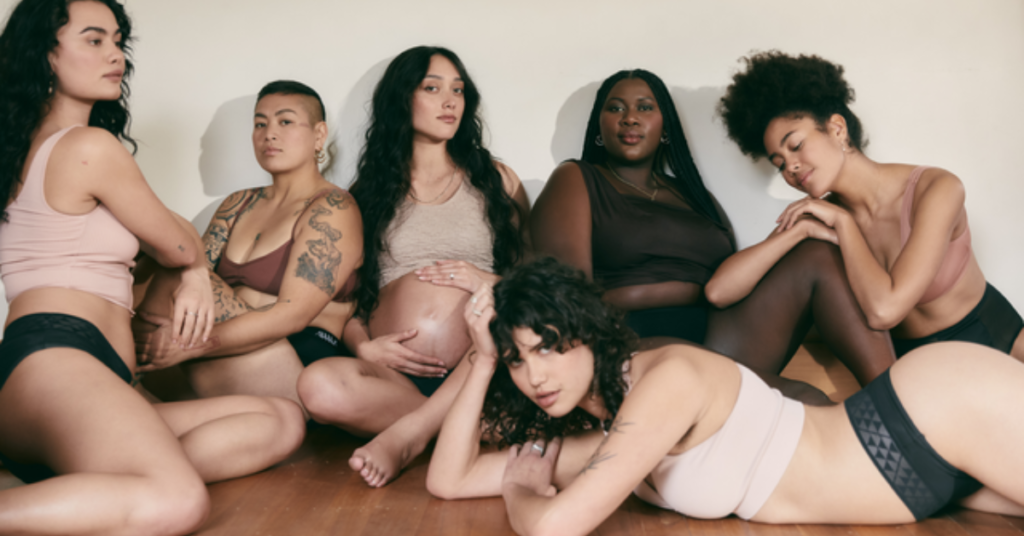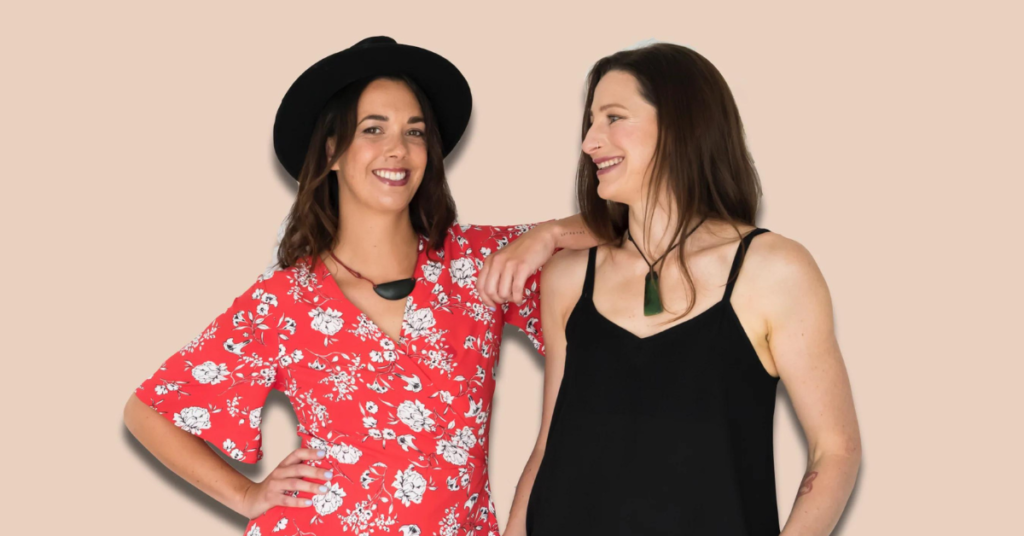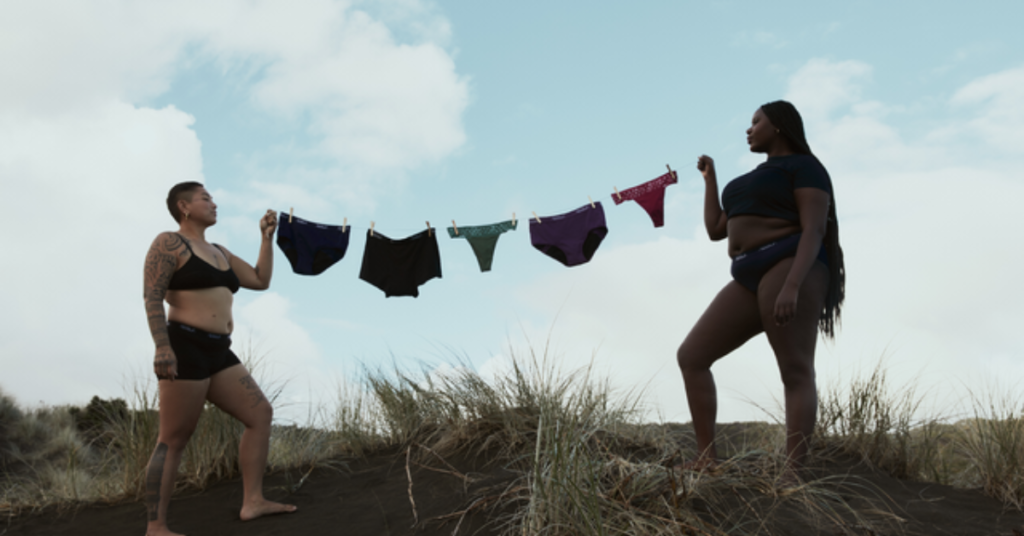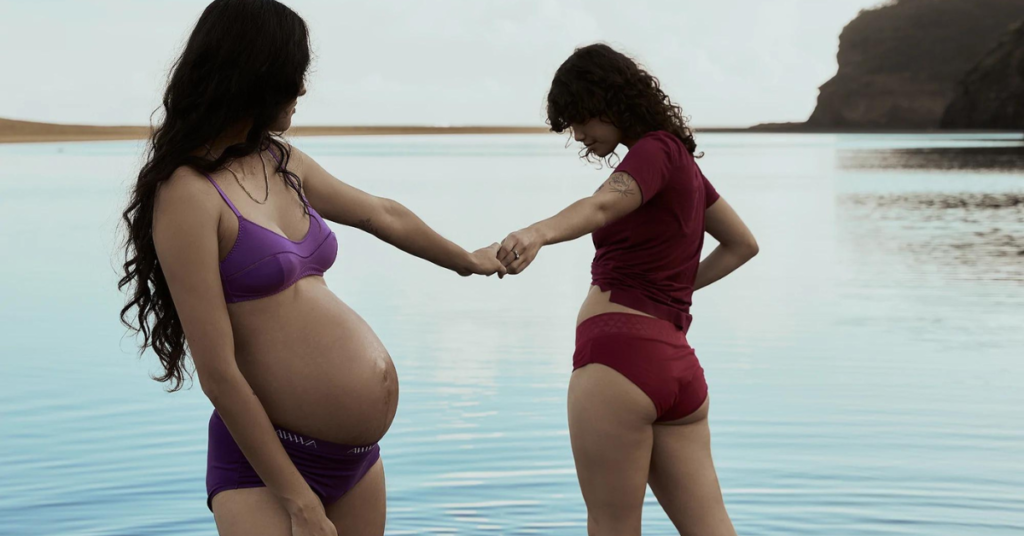Between Aotearoa New Zealand and Australia there are approximately 7.5 million people who menstruate. With an average of 16 to 22 disposable sanitary items used per period, around 200,000 tonnes of sanitary waste is generated annually, taking anywhere between 500 to 800 years to decompose. This is one of the reasons why recently Certified B Corporation AWWA set out to provide modern, low-waste solutions for period care.

Image source: AWWA
In celebration of AWWA’s certification, we sat down with the team to learn more about how they rooted their operations in Māori traditions that celebrate ikura (Māori translation for period), and how they are positively impacting the environment and the narratives around periods.
Could you tell us a bit about AWWA and what makes it unique?
AWWA respects both the environment and people who menstruate, by offering an alternative to single-use period products. Our brand was one of the first in Aotearoa New Zealand to provide people of all shapes, sizes, and identities with innovative, sustainable period-proof underwear and swimwear, to effectively manage their menstrual cycles. Beyond period care products, we provide a platform for education and kōrero – conversations – around our ikura, our period.
AWWA is a Māori business so our kaupapa, our purpose, is firmly rooted in the wisdom and traditions that reconnect people to their cycles, as well as the planet.
We set out to grow AWWA into a thriving, value-based enterprise that deeply cares for the environment and benefits communities, including our staff and those who can not afford period products.
Our underwear is ethically made from organic and recycled fabrics and can absorb up to five regular tampons or pads worth of blood, eliminating the need for other wasteful period products. The range is designed to be modern and comfortable with all menstruators in mind.

AWWA founders Michele and Kylie
Our purpose and why we exist revolves around three main pillars:
Environmental: We strive to reduce the amount of single-use period products ending up in landfills in Aotearoa New Zealand and around the globe by providing an affordable and comfortable solution. Most single-use products also contain plastic, presenting the planet with a significant waste issue if a sustainable alternative is not provided to the approximate 50 percent of the world’s population who get a period.
Social: AWWA lives and breathes inclusivity, from our designs to providing equal opportunities for everyone to access our resources and products. We are committed to doing our part to eradicate period poverty in Aotearoa New Zealand.
Cultural: AWWA is rooted in Māori traditions that celebrate ikura, our periods. Our tūpuna – our ancestors – thought of their period as being sacred and celebrated menstruation as it signified the continuation of whakapapa – of that ancestry.
We’re on a mission to change the narrative around menstruation and shift peoples’ emotions around periods to ensure that they are positive.

Image source: AWWA
Why did AWWA want to certify as a B Corp?
Since inception, we have put the planet and people first in all of our decision-making, from the materials we use to our fully traceable supply chain, donating products to those experiencing period poverty, and ensuring our employees are paid fairly. Becoming a Certified B Corporation means that everything that is important to us and part of the kaupapa, or the mission, of AWWA is recognised and communicated to our customers and stakeholders.
Being a B Corp also enables us to be part of a community of like-minded businesses from a range of sectors, providing us with opportunities to see how we can make further improvements to our operations and business models.
Could you tell us some of the biggest ways in which AWWA is making a positive impact?
Period poverty and the impact it has on people’s lives contributes to gender inequalities and socio-economic divides within society. As such, we are particularly proud of our ‘Designed to Give’ program which sees us donating two per cent of our annual revenue through product donations to NGOs and charities. This program was specifically created to fight period poverty in Aotearoa New Zealand. Our product partners include Dignity, Women’s Refuge, Unicef and the Auckland Refugee Centre, as well as schools and other not-for-profits.
Our goal is to ensure that no individual with a period is forced to miss out on an education or work due to having inadequate access to period products.
We seek to positively contribute to the communities in which we work, live and play, by providing employment opportunities and minimising our environmental impact. AWWA is a climate positive business, which means that we offset all emissions from the time the product leaves our factories to when it arrives at our customers’ front doors. We measured and offset 120 per cent of our carbon footprint through Ekos, helping to grow and protect native forests in Aotearoa New Zealand and the Pacific Islands.
Further contributing to our positive environmental impact, as of June, 2022, together with our customers, we have prevented almost 23 million single-use period products from ending up in landfills and waterways in Aotearoa New Zealand and around the world.

Read: Period poverty is real. Period. by AWWA
While fighting against period poverty, what business practice do you hope to see become the norm in your industry?
We would love to see traceable supply chains become the norm. This means that every business displays who is responsible for each part of the supply chain – from the fields the cotton is picked in, through to where the garments are packaged and sent off. We would also like to see all apparel companies using organic cotton and recycled nylon (begone, production of new nylon!). We know from experience that there is enough nylon in circulation to be recycled and reused. Garment facilities should therefore be equipped to effectively access and recycle these materials on every continent, reducing travel footprints and wastage.
Finally, we are rooting for a full circular economy of all garments to become the norm. The industry (and AWWA) must collectively and innovatively work to create lasting solutions for the end-of-life of products to ensure that they don’t get discarded into landfills.
And to end, do you have any tips for aspiring B Corps about the certification process?
Don’t give up! It is a lengthy process but 100 per cent worth it. The B Corp team offers invaluable help and support, so reach out to them. Going through the certification process enabled us to identify many areas where we could make small changes that had a big impact. We were also able to identify other areas of improvement so that we could set relevant, achievable goals.

A big congratulations to AWWA for achieving B Corp certification!
Interested in learning about more purpose-led apparel B Corps? Check out bassike and Kowtow.

